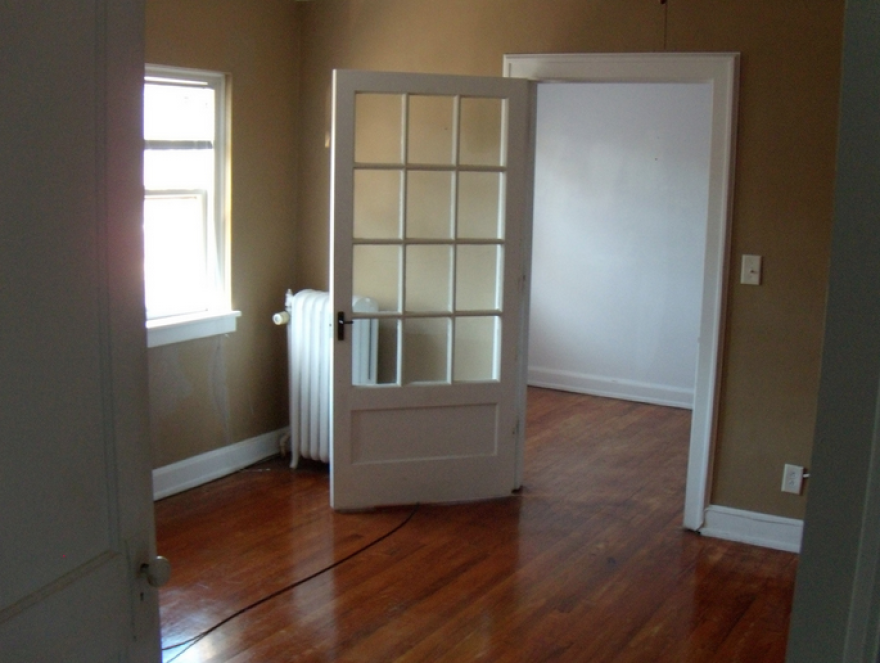We often hear how the rent in San Francisco is some of the priciest in the country, but there are also just not enough places for people to live.
The mayor’s office has asked city officials to speed up the lengthy permitting process in efforts to increase the housing supply. But some say that the supply already exists -- that thousands of units are simply being kept off the market. Some estimate up to 10,000 of these units exist. Many sit unrented because tenants are proving too risky an investment for some property owners.
One Landlord's Story
When I meet Noni Richen, she proudly points out some of the original features of her Victorian-era home. She bought it for just over $56,000 back in 1974. Back then, she says the Fillmore neighborhood was different. “Most of the houses were boarded up with signs that said ‘Do not enter, rats are being poisoned,’” she says.
Richen and her husband got to work, fixing the place up. The house had a unit downstairs and they decided to rent it out for extra income, to a young woman. “She had pink hair and worked in the recording industry,” she recalls. Richen thought the tenant would stay for three years or so, but she stayed for much longer -- nineteen years, to be exact.
“Having a tenant move in with a lease that lasts for six months to a year or month-to-month, but it’s a lifetime lease-- it’s extremely difficult to have a tenant to move, no matter how badly you need the property,” Richen says.
Dealing with a Problem Tenant
Over time, Richen noticed things change with her tenant. She lost her job, her roommate, and then stopped paying rent. Richen ended up settling with her rather than going through the eviction process. That means she offered her tenant two months of free rent and ignored a bounced check in order to get her to move out of the apartment.
Why did she choose to settle?
“The attorneys that I talked too said this person will have the ability to get a free lawyer, and to fight even a non-payment eviction and take it to court and it could drag out and be expensive,” Richen explains.
After that experience, Richen decided to keep the apartment off the market. She rents it only to her family members. She says she’s one of many landlords who don’t want to rent out their units to the general public. She knows of a few buildings in her own neighborhood that are currently vacant.
“There’s a house up the street and it’s been vacant for at least 20 years,” she says.
The effects of rent control on Landlords
Richen says San Francisco’s rent control law is one of the main reasons why this is happening. Not only does the law make it very difficult to get rid of a problem tenant, it also prevents landlords from charging market rates for their units.
Across the street, she points out another building she and her husband own. It’s a four-unit building she bought in the 80s, and it’s always been a rental.
The entire building is rent-controlled, and all of her tenants moved in so long ago that none of them pay more than $1,200 per month for their two-bedroom apartments. She’s very aware that she could rent them for over $3,000 a unit in today’s market.
“I don’t begrudge them, they aren’t doing anything illegal,” Richen says about her tenants. “If I were a renter, I’d do the same thing and save my money. With the tenants, I don’t feel angry toward them at all.”
Richen has heard the argument that what she’s doing, keeping housing off the market, is contributing to a larger shift in the city, where artists and musicians are being pushed out. But she says she has to protect her source of income.
“I love artists,” she says. “They are fun to be around but I’m not able to take the risk with one of my few assets, on that person working for a year on a piece of art and it doesn’t sell. It’s not my job to support all of these people, as much as I enjoy being around them.”
Investing in Their Future
Richen wishes she could base her rent on what people can afford, because rent control right now isn’t necessarily helping people who need it.
She’s also frustrated by the perception that property owners like her are swimming in cash. She says after taxes and repairs, the income from the rentals is around $40,000 total per year.
“I worked very hard for this, don’t get me started about how hard we worked,” Richen says. “We’ve earned it.”
And that brings us back to the unit with that problem tenant years ago. Now that the unit is off the market, her daughter and son-in-law can live there, giving her easy access to her grandkids. She says having family move into the unit downstairs is all part of the plan for her future as she gets older.
This investment in her future and family, she says, is the one that is sure to pay off.


